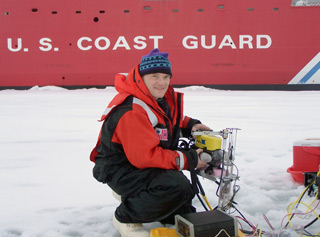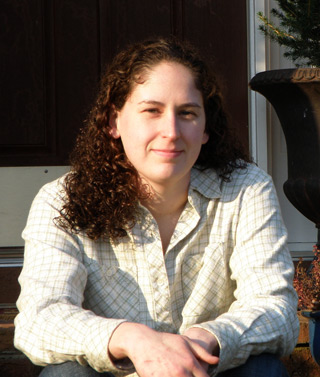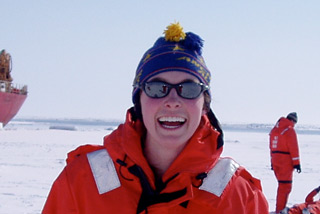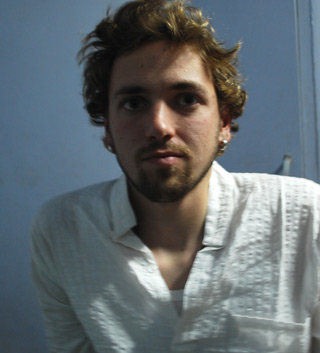Meet the Sediment (Mud) Team
The sediment team studies sediment – in the Bering Sea, that usually means mud. They study the various organisms that live on the bottom of the Bering Sea, and how those organisms process nutrients such as nitrogen and phosphorus. They’ll use the multicorer to collect multiple samples of mud from the bottom, the CTD, and a remotely operated vehicle (ROV) to study productivity immediately under the sea ice.
 David H. Shull
David H. Shull
Scientist
Western Washington University
What is your role in the expedition?
I am a principal investigator studying the communities of organisms that inhabit the sediments of the Bering Sea, how they change with changes in ice cover, which we think affects the food supply to the sediments, and how variation in the benthic organisms affects the cycling of nutrients between the sediments and overlying water. I collect sediment samples using a multicorer, which can take eight undisturbed sediment cores, and run the sediment through a battery of tests and experiments. My team and I use the samples for determining the animals that live in the sediment, nutrient concentrations and distributions, the activity of some radionuclides that we use for tracing the rates of different processes, and we measure the rates of some chemical reactions that happen in the sediment and how these reactions affect the fluxes (transport) of nutrients between the sediment and overlying water.
Why did you choose science as a career?
I have been interested in ocean critters for a very long time. In school I found I had a knack for mathematics and I did OK in my chemistry courses. Now my research addresses questions that look at the interaction between the animals I find so interesting and the chemicals that they affect, or are affected by, in the environment. I try to connect the animals and chemicals through mathematical models.
Where did you grow up?
I grew up in Puyallup, Washington. I went to school at the University of Washington in Seattle as an undergraduate and then moved to the east coast (Connecticut and Boston) for graduate school. I returned to Washington State in 2004 when I started my current job at Western Washington University.
What were your favorite and least favorite things about high school/college?
I enjoyed doing science outside. As an undergraduate I had the chance to do research from oceanographic vessels and I also spent a summer participating in a research project using SCUBA. Some of my best experiences in school did not take place in the classroom but rather on (or under) the water.
 Maggie Esch
Maggie Esch
Graduate Student
Western Washington University
What is your role in the expedition?
I will be a part of the sediment team on the cruise studying the biogeochemical processes in the sediment and overlying water in the Bering Sea.
Why did you choose science as a career?
My scientific education started at a young age. I even remember my dad giving me my first microscope when I was 10. The desire to learn and ask questions was not only fostered by my parents, but also by teachers and mentors along the way. Even though I think I could be interested in any field of science, I have been searching for something I could be really excited about, and I recently decided to give the marine sciences a try. So far, I have really enjoyed learning all of the new things I have been introduced to. Perhaps I have found my inspiration in the mud!
Where did you grow up?
I grew up in western North Carolina and went to college for my undergraduate education in Pittsburgh, Pennsylvania.
What were your favorite and least favorite things about high school/college?
My favorite thing about high school was my biology teacher and her classes. She was very inspiring and is still a close friend. My internship at an environmental center in Pittsburgh was what I enjoyed most in college. The people I met there are wonderful and working and learning outside in a hands-on way was great!
 Heather Whitney
Heather Whitney
Graduate Student
University of Washington
What is your role in the expedition?
I am a member of the sediment team studying the chemistry and biology of the Bering Sea shelf. Using the multi-core apparatus, I help collect, process, and analyze sediment samples.
Why did you choose science as a career?
The intense desire to continue learning and discovering new things naturally led me into science. Oceanography especially appealed with its combination of hands-on and environmentally relevant research areas!
Where did you grow up?
I grew up in Alaska, which is one reason why I am delighted to return to my home turf and work in the Bering Sea.
What were your favorite and least favorite things about high school/college?
I especially loved the myriad of opportunities that were available to me in college. It always made me feel kid in a candy store with so many new options and experiences to try.
 Chad Klinesteker
Chad Klinesteker
Technician
Oregon State University
What is your role in the expedition?
I am a contractor being hired by Oregon State University (OSU) to maintain the multi-core and provide technical support in regards to that equipment.
Why did you choose science as a career?
I kind of fell into the science field after I joined the Coast Guard. I spent 2004 through 2007 as a Marine Science Technician on board cutter Healy and have since offered my services to some of the institutions that we worked with the most, mainly Scripps Institution of Oceanography and Oregon State University.
Where did you grow up?
I grew up in Kalamazoo, Michigan and attended the high school of the same name.
What were your favorite and least favorite things about high school/college?
I have little college experience and will be attending full-time in January 2010. Currently I live in San Francisco, California.


